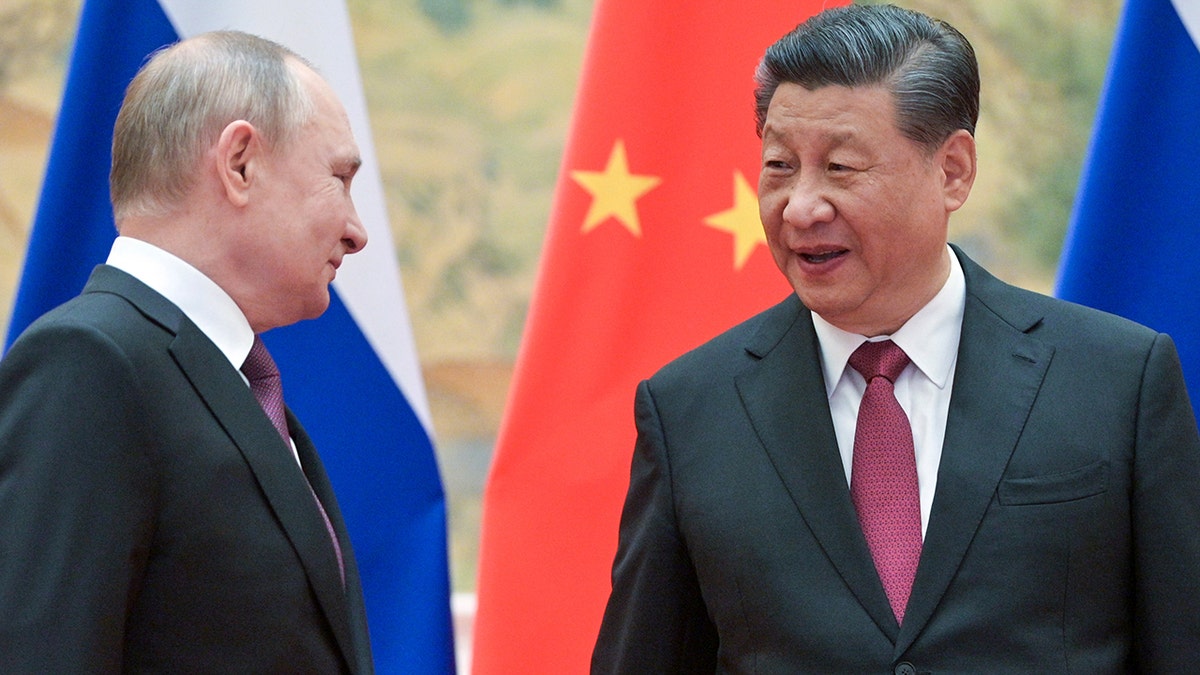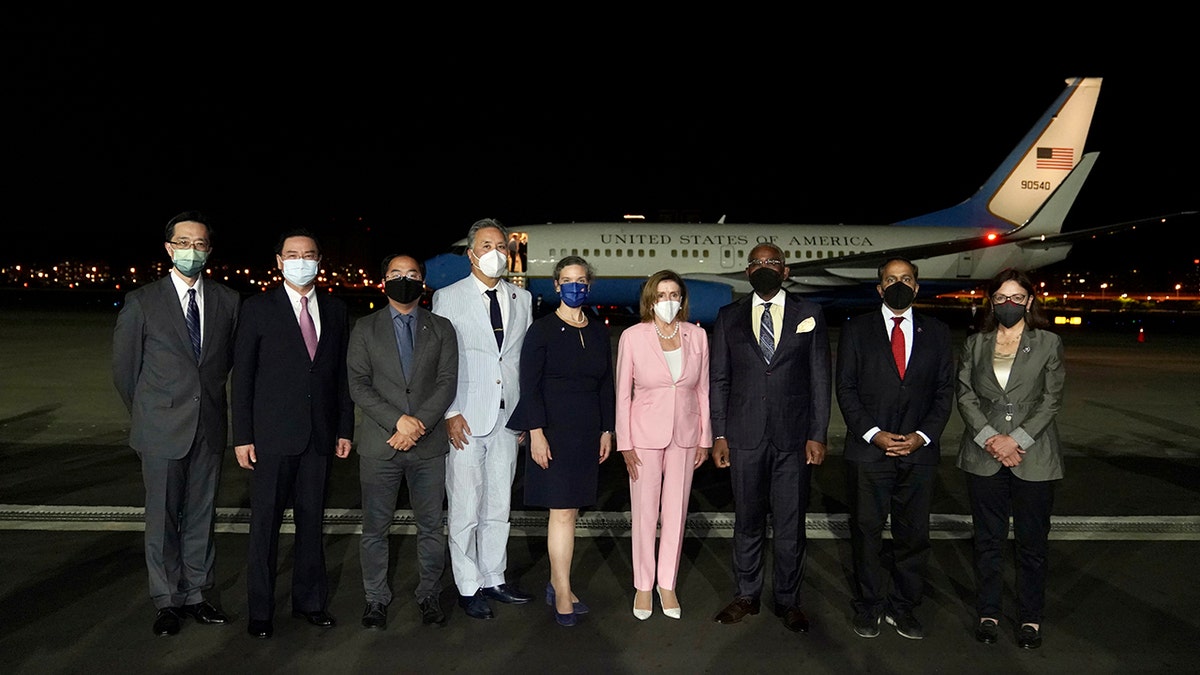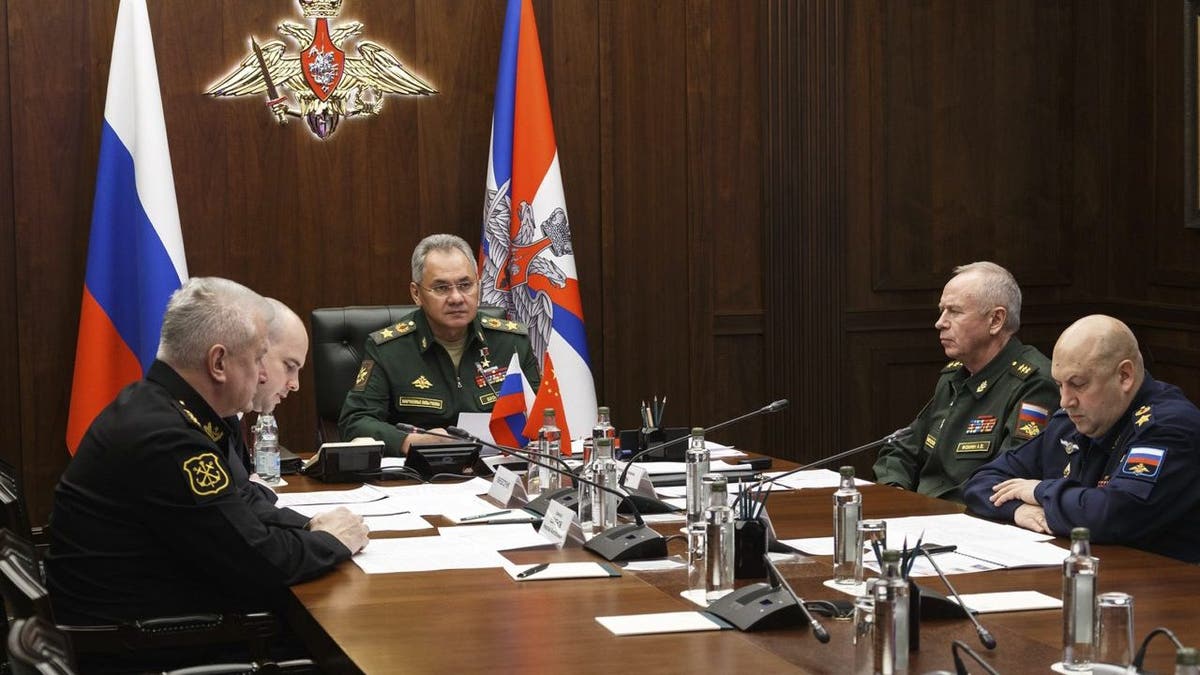Partnership between China and Russia growing
Rep. Mike Gallagher has the latest on anti-U.S. threats and possible future invasion of Taiwan on ‘The Story.’
It was predictable that Russia’s Foreign Minister would rip House Speaker Nancy Pelosi’s trip to Taiwan, calling it an "annoyance" and accusing America of the very thing the West blames Russian President Vladimir Putin of constantly flaunting: Impunity. Foreign Minister Sergei Lavrov’s point was that despite warnings from China that it did not want her in its backyard, Pelosi did what she wanted to and got away with it.
China, of course, cannot dictate the travel of American lawmakers, but it can be provoked. "Those who play with fire will not come to a good end," threatened China’s Foreign Minister Wang Yi.
The visit so roiled Beijing that it has apparently led to practically shore-lapping military exercises that will encircle the island nation this week. Given Ukraine is often seen as a litmus test for China regarding its designs on Taiwan, how does this play into the bigger geopolitical picture and specifically the escalating tensions between the United States and a Russia essentially being backed by China?
The answer is—it does not, according to Dmitri Trenin, who served in the Soviet and Russian armies and reached the rank of colonel before going on to become a military and political analyst. Russia and the U.S., he says, are waging an indirect war in Ukraine. Trenin told Fox News, "But, it (the Pelosi visit) may make the Chinese drop their lingering illusions concerning doing business with the United States. That would be good for Russia."

Russian President Vladimir Putin and Chinese President Xi Jinping pose during a meeting at the Diaoyutai State Guesthouse on Feb. 4, 2022. (Photo by Alexei DruzhininTASS via Getty Images)
Trenin, who now holds positions at both Russia’s Institute of World Economy and International Relations and the Higher School of Economics in Russia, said that at the same time "the Chinese interest in keeping their access to Western markets makes them very careful not to run afoul of the U.S. on the Russia sanctions issue."
Trenin says the Russians have gotten used to that. "They know that China is always after its own interests, and they look for areas/instances when these coincide with their own."
Pelosi is the highest-ranking United States official to visit Taiwan in a quarter of a century. "America made a promise to always stand with Taiwan," she said. "Today our delegation came to Taiwan to make it unequivocally clear we will not abandon our commitment to Taiwan."
Trenin says he believes "many if not most" in the rest of the world actually saw the visit as "a reckless provocation in support of pure personal/party ambitions of the Speaker, at the price of risking a direct military collision between two nuclear-armed superpowers." But the visit does show, he said, that "The U.S. remains the world’s top player by far. It can handle both adversaries, Russia and China, simultaneously. Essentially, Washington insists that it can do as it pleases anywhere in the world, ignoring the protests of the major powers."
On Thursday morning, deputy chairman of Russia’s security council Dmitry Medvedev even added a threatening note, saying "The United States will now have global consequences," he said. "No one can guarantee that the next flight of some restless old woman will reach the selected point."
REPORTER'S NOTEBOOK: CHINA, PELOSI AND THE IDES OF AUGUST

U.S. House Speaker Nancy Pelosi, center pose for photos after she arrives in Taipei, Taiwan, Tuesday, Aug. 2, 2022. (Taiwan Ministry of Foreign Affairs via AP)
Taiwan certainly welcomed Pelosi with open arms and her remarks about America’s commitment to democracy being "ironclad" went down well.

Russian Defense Minister Sergei Shoigu, center, takes part in a video call with his Chinese counterpart Wei Fenghe in Moscow, Russia, Tuesday, Nov. 23, 2021. Shoigu and Wei signed a roadmap for military cooperation between Moscow and Beijing and called for intensifying joint drills and patrols. (Vadim Savitskiy/Russian Defense Ministry Press Service via AP)
Trenin claims Russia-China ties are also pretty strong. They have passed the post-February 24th "stress test," he says. Perhaps most significantly, Trenin concludes, the pivot East for Russia is complete, ending what he describes as a 300-year Western orientation, "for better or for worse."
CLICK HERE TO GET THE FOX NEWS APP
"Moscow," he says, "is already shifting resources in that direction. The ambassadorship in Beijing is going to be more important than DC, Delhi more prestigious than Berlin and Tehran will outrank Paris."









































